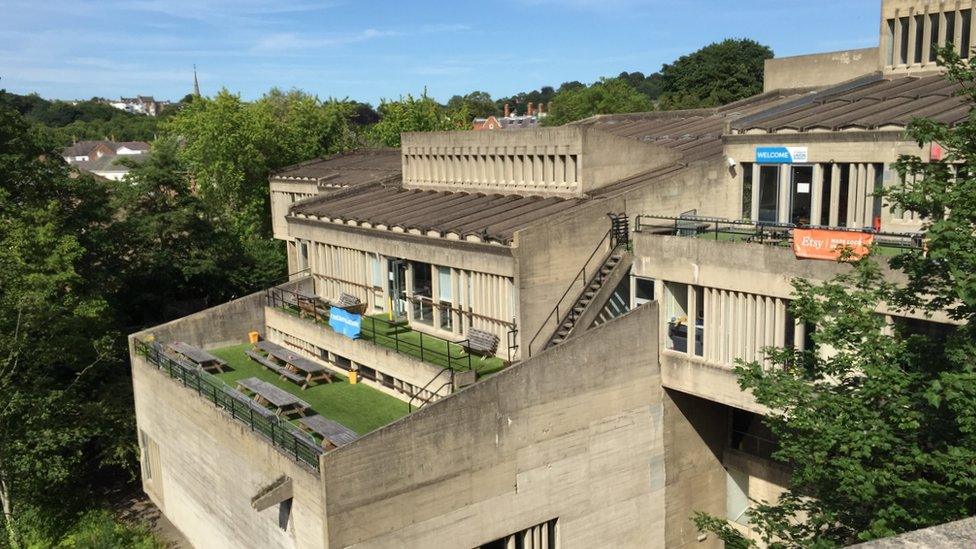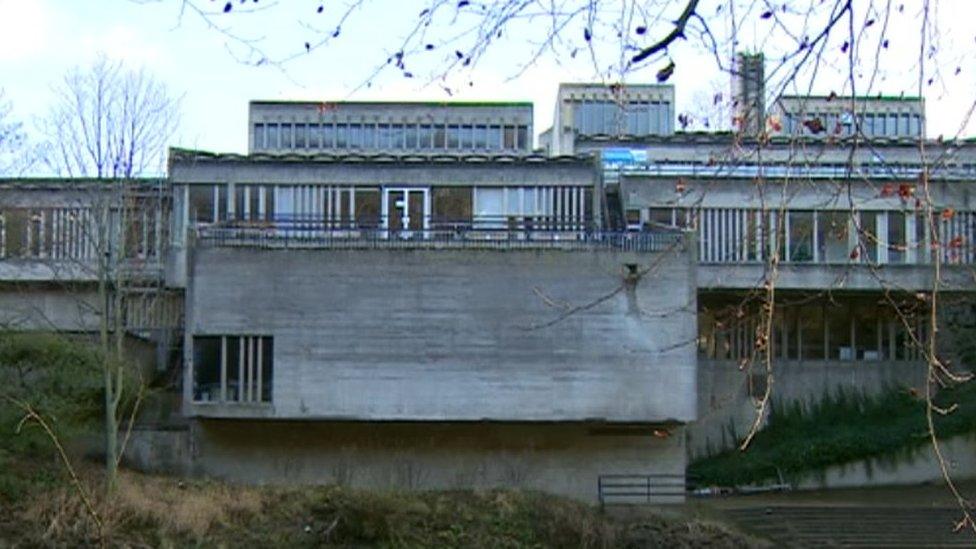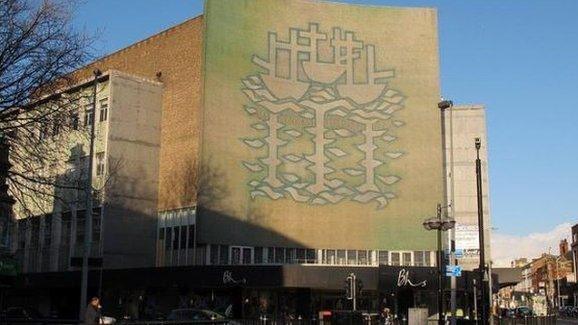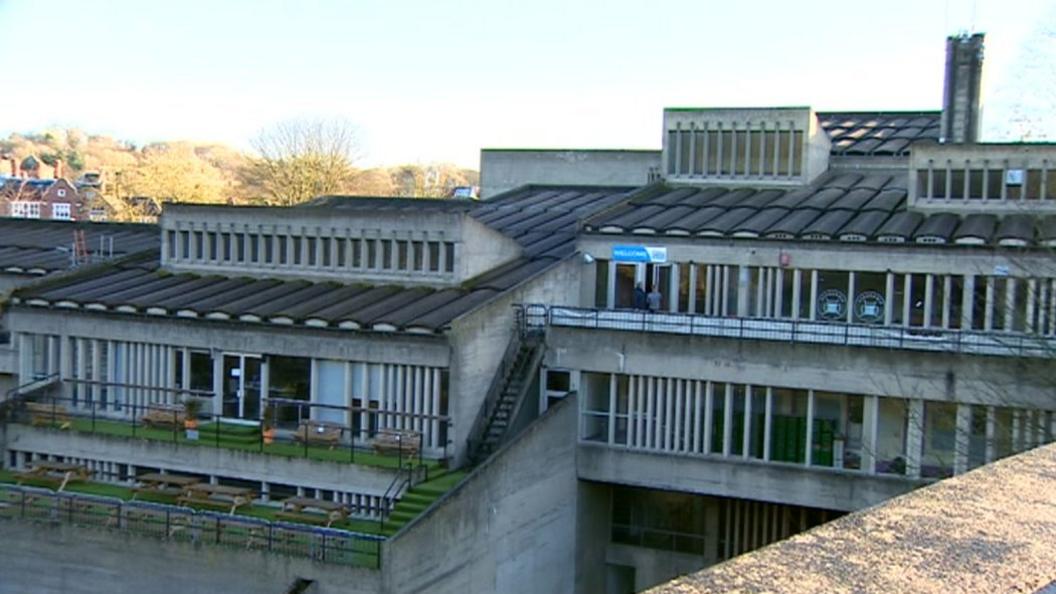'Brutalist' Durham student building gains listed status
- Published

The five-level concrete building was constructed between 1964 and 1966
A student union building described as a prime example of "brutalist" architecture but was at risk of demolition has gained listed status.
Dunelm House in Durham was built in the 1960s and the concrete structure received a number of design awards.
Durham University wanted to demolish it due to the £14.7m cost of repair work, prompting a campaign which led to it gaining Grade II listed status.
The university said it will now be "considering options for the site".
The building, on the bank of the River Wear has divided opinion, with some Durham residents likening it to a "concrete carbuncle".
However, Architect's Journal described it as "uncompromisingly modern yet markedly respectful of the splendour of the site" and a "convincing and delightful huddle".

The concrete building is on the banks of the River Wear
A previous application for listing was turned down by the culture secretary, but the 20th Century Society - an organisation which aims to safeguard the heritage of architecture and design in Britain from 1914 onwards - has now successfully appealed against the decision.
Claire Price, from the society, said: "I am delighted that the campaign has finally been successful.
"It is such a striking building in a stunning location and fully deserves recognition at a national level.
"We look forward to working with the university to identify ways the building can continue in use as there are so many exciting possibilities for it."
Professor Stuart Corbridge, vice-chancellor and warden of Durham University, said: "The ... decision to list Dunelm House as Grade II, which notes there are divided opinions on brutalist buildings, has given us much to consider as we shape our future investment strategy.
"We will now carefully work through options for the building, while continuing to work in partnership with our students, staff and stakeholders."

Follow BBC North East & Cumbria on Twitter, external, Facebook, external and Instagram, external. Send your story ideas to northeastandcumbria@bbc.co.uk, external.
Related topics
- Published20 January 2017

- Published23 December 2016
